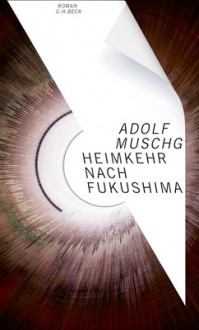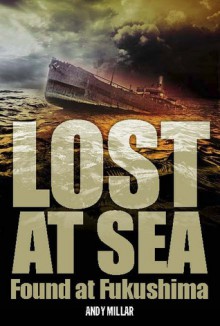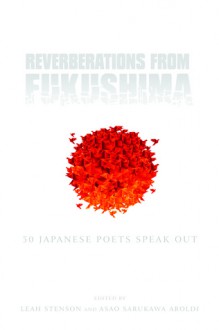
Ohje, dieser Roman des Schweizer Schriftstellers Adolf Muschg war für mich bedauerlicherweise ein sehr sprödes auf Gewalt getrimmtes intellektualisiertes mühsames Werk, in dem seichte Querverweise und Zitierungen quasi mit der Mistgabel hineingeschaufelt wurden. Selbstverständlich habe ich als Leserin die Reminiszenzen an Adalbert Stifters Œuvre auf Grund des Klappentexthinweises erwartet, da ja beide Protagonisten den Linzer Autor, die Pflichtschullektüre-Nemesis meiner Kindheit, verehren. Auch habe ich mir erhofft, endlich einen moderneren erwachseneren Zugang zu Stifter zu erhalten, gleichwohl blieb mir das verwehrt, denn die sehr inflationär in vielen Szenen zitierten Stifter-Passagen passen leider nur marginal zum Geschehen des Romans und dekonstruieren die ohnehin schon sehr zerfledderte Handlung noch zusätzlich.
Aber nicht nur bei Stifter wird sich voller intellektueller Eitelkeit bedient, um sich als braver Bildungsbürger darzustellen. Gleich einem Rundumschlag werden in einem recht präpotenten Zitate-Ratespiel sehr viele vage Anspielungen auf andere Werke bemüht, ohne in die Tiefe zu gehen: z.B. Tezukas Graphic Novel Adolf, sehr viele unterschiedliche Werke von Adalbert Stifter, Hiroshima Mon Amour, Hieronymus Bosch, einige wichtige Architekten … . Hätten solche Anspielungen wirklich punktgenau in die Handlung gepasst und wären sie inhaltlich etwas intensiver und tiefer in den Plot eingewoben worden, hätte es mir sogar sehr gut gefallen, aber fast immer war ich ob der Seichtheit der angewendeten Querverweise nur verführt auszurufen: „Jaja wir wissen es schon! Diesen Film hast Du auch gesehen, diesen Roman hast Du auch gelesen, diese Graphic Novel steht auch in Deinem Bücherregal herum und dieses Gebäude und Bild kennst Du.“  Selbst die Sexszenen waren keine uniquen Ideen, sondern eine Reminiszenz an Murakami. Da ich mich ja selbst in so einer Community bewege und um solche Auswüchse in Privatunterhaltungen zu verhindern, wurde bei mir zu Hause ein Phrasenschwein aufgestellt, in das jeder einzahlen muss, der solche unsäglichen Charaktereigenschaften außerhalb des beruflichen Unigeländes an den Tag legt (Zitate in toten Sprachen wie Latein und Altgriechisch zählen übrigens doppelt). Der Autor hat, wenn ich alle Strafbeträge zusammenzählen würde, ungefähr für 1000 Franken Phrasen für mein hungriges Schweinderl gedroschen.
Selbst die Sexszenen waren keine uniquen Ideen, sondern eine Reminiszenz an Murakami. Da ich mich ja selbst in so einer Community bewege und um solche Auswüchse in Privatunterhaltungen zu verhindern, wurde bei mir zu Hause ein Phrasenschwein aufgestellt, in das jeder einzahlen muss, der solche unsäglichen Charaktereigenschaften außerhalb des beruflichen Unigeländes an den Tag legt (Zitate in toten Sprachen wie Latein und Altgriechisch zählen übrigens doppelt). Der Autor hat, wenn ich alle Strafbeträge zusammenzählen würde, ungefähr für 1000 Franken Phrasen für mein hungriges Schweinderl gedroschen.
Dass ich erst im dritten Absatz zur Kritik an der Handlung des Romans komme, sagt eigentlich schon sehr viel aus. Der Plot ist nach Weglassung des intellektuellen Füllmaterials eigentlich gar nicht schlecht, wenn auch sehr dürftig. Im Prinzip war es diese Geschichte, die mich dazu veranlasste, das Buch als Rezensionsexemplar zu wählen. Der Architekt Paul Neuhaus wird nach Japan eingeladen, um als Gallionsfigur einer Künstlerkolonie nach dem Vorbild Worpswedes die verseuchte Landschaft Fukushimas wiederzubesiedeln. Mit der verheirateten Mitsuko und einem Geigerzähler reist er in einer Fact Finding Mission durch das von den Menschen teilweise aufgegebene und jetzt allmählich wieder kultivierte Land, in dem man die Strahlenbedrohung nicht sehen und auch nicht riechen kann, nur der Geigerzähler manifestiert durch sein Piepen diese unsichtbare, vage Gefahr.
Diesen Aspekt des Romans möchte ich auch sehr loben, er ist innovativ, spannend, einerseits mysteriös und andererseits auch für manche in unseren Breiten sehr realistisch. Nämlich die Ambivalenz der Japaner zur Strahlenbelastung durch die Atombomben, die permanente sehr intensive Nutzung der Kernkraft zur Stromerzeugung und durch den Reaktorunfall in Fukushima. Hier wird alles verdrängt, was es zu verdrängen gibt, beschönigt und unter den Teppich gekehrt. Zuerst wundert man sich noch über dieses Verhalten und dann wird man plötzlich an der eigenen Nase gepackt, speziell jene Personen, die im deutschen Schwarzwald, in Bayern und im Salzkammergut in Österreich wohnen.
Da sieht man sich selbst plötzlich vom Autor in die Rolle der Japaner versetzt, weil speziell diese Gegenden durch den Regen 1987 stark von Tschernobyl betroffen waren, was der Situation in Fukushima gleichkommt und merkt, dass wir genauso den Kopf in den Sand stecken, weil wir die Bedrohung nicht sehen und riechen können. Ab wann haben wir vergessen, darauf zu achten, keine Pilze aus diesen Regionen zu essen, kein Wildschwein von dort zu konsumieren? Ja, das macht nachdenklich!
Wie schon erwähnt, zerfällt ansonsten der Plot gegen Ende des Werkes bedauerlicherweise ein bisschen, er wirkt degeneriert und dekonstruiert, die unmögliche Liebesgeschichte bzw. Liason ist tragisch, hat aber dennoch irgendwie ein Happy End. Aber wie bereits gesagt, die Geschichte ist das beste an diesem Roman.
Einen weiteren massiven Ärgerfaktor muss ich leider auch noch erwähnen und meinen Unmut darüber kundtun. Der Roman strotzt nur so von systematischen orthografischen Fehlern, die ich überhaupt nicht tolerieren kann. Es wurde die alte ß-ss-Schreibung verwendet. Zuerst habe ich selbstverständlich gegoogelt, ob die neue Rechtschreibung in der Schweiz nicht angekommen ist, und erfahren, dass es dort überhaupt kein scharfes ß gibt. Also wieso verwendet ein schweizer Autor in einem deutschen Verlag 2018 publizierten Werk die alte Rechtschreibung, die nicht mal die heute gültigen Schweizer Orthofgrafieregeln implementiert? Das muss mir mal jemand erklären! Wie sollen junge lesende Leute richtig schreiben lernen, wenn nicht mal Autoren und Verlage inklusive Lektorat die neuen Regeln anwenden? Ist das altersstarrsinnige Eitelkeit? Oder was! Leute so geht das nicht! Und übrigens – ich will ja nicht klugscheissern, aber Olympiade ist der Zeitraum zwischen zwei Olympischen Spielen! Was soll das für ein Lektorat sein, das so etwas verwechselt und nicht weiß. Vor allem doppelt peinlich, wenn so etwas in einem derart intellektuell aufgemascherlten Roman passiert.
Fazit: Lediglich die Handlung und die Figuren des Romans haben einen gewissen Charme. Die Ausführung derselben ist bedauerlicherweise grottenschlecht und aus diesem Grund gibts aus meiner Sicht auf keinen Fall eine Leseempfehlung.

 Log in with Facebook
Log in with Facebook 








